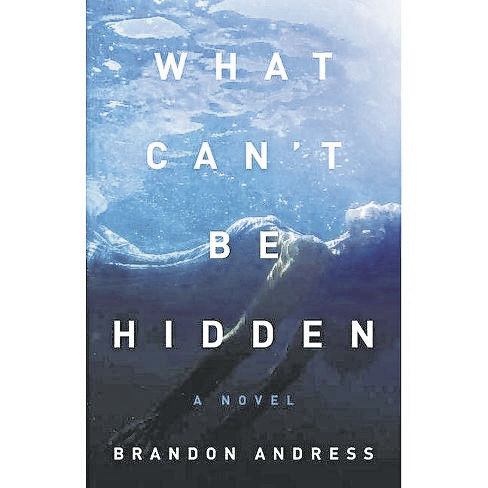The idea seemingly grew out of nowhere even as Brandon Andress cut his grass two years ago.
The Columbus resident and ex-Republic Faith section columnist, who sometimes was frustrated with readers who would shut down even before a viewpoint was fully laid out in a column or elsewhere by any writer, realized that fiction could present a perspective in a less threatening, more subtle way, especially if readers gradually and emotionally connected to and empathized with the characters.
“Nonfiction many times today automatically turns into an intellectual argument,” he said.
He stopped mowing for 30 minutes to punch in on his phone what he calls “a download” into his brain the idea for a novel about a stranger captured on the isolated and restrictive community of Patrida and what that entails for its residents.
“I discovered that it’s possible to introduce ideas into fiction that can more easily go from a person’s head to their heart because they often can put themselves in a character’s shoes,” Andress said. “It’s a very disarming way for people to hear a message.”
Andress’ 284-page book, titled “What Can’t Be Hidden” is a just-released, allegorical fantasy that follows the developments when a character named Thura “clandestinely befriends the captured stranger, who in turn gives Thura hope for escaping the only life she has ever known and finding something she has never experienced … freedom,” according to publicity material from Quoir, the book’s Los Angeles-based publisher.
“What I want more than anything is for people to trust me that this is meaningful to read,” Andress said. “And I realize that could be a big thing to ask of them to trust me with fiction.”
One reader already told him it has changed the way she viewed other people.
“And I think that is massive,” he said.
Andress built his column readership steadily in the newspaper’s pages from 2008 to just a few months ago with an often-recurring theme that Christians should demonstrate love and compassion to others, no matter how different those others might be. His first book, published as a collection of hopeful essays in 2018, was “Beauty in the Wreckage: Finding Peace In the Age of Outrage.”
Today, amid what has been a nation fractured by politics, faith and goodness knows what else, Andress sees signs of people dropping their differences and their social media and other arguments for a softer approach to one another.
“I already think that people are realizing that there is now a thirst for more goodness, more grace, more mercy, more love and more humanizing,” he said. “I see people all around me waking up to that. And these are people who have been overly ideological, overly political, and they seem to be coming to their senses, saying ‘We’ve just been repeating the same cycle (of arguing) over and over going back and forth between the two, and this will end in a very dark and ugly place.”
Viewpoint Books co-owner Beth Stroh mentioned that Andress is among customers’ favorite local authors.
“I think many people understand, appreciate, and share Brandon’s world view, whether it be related to their spiritual lives or the way they navigate this ever-changing world of the past 18 months,” Stroh said. “As we say at Viewpoint, words matter, and Brandon’s words seem to ring true with many people. His writing is also wonderfully inclusive and lovely to read, and the reviews of his new book indicate many people think so.”





